Was UserBenchmark right?
Date:
Was UserBenchmark right about brands and AMD? Perhaps not quite, but reviewers are ruthless and communities seem to love hating certain brands or products.
For the longest time ever, the UserBenchmark site has gotten a pretty bad reputation on a variety of sites, for having their results be rather biased. This isn't just some speculation, but even their own site has a section dedicated to giving their own view of this trend:
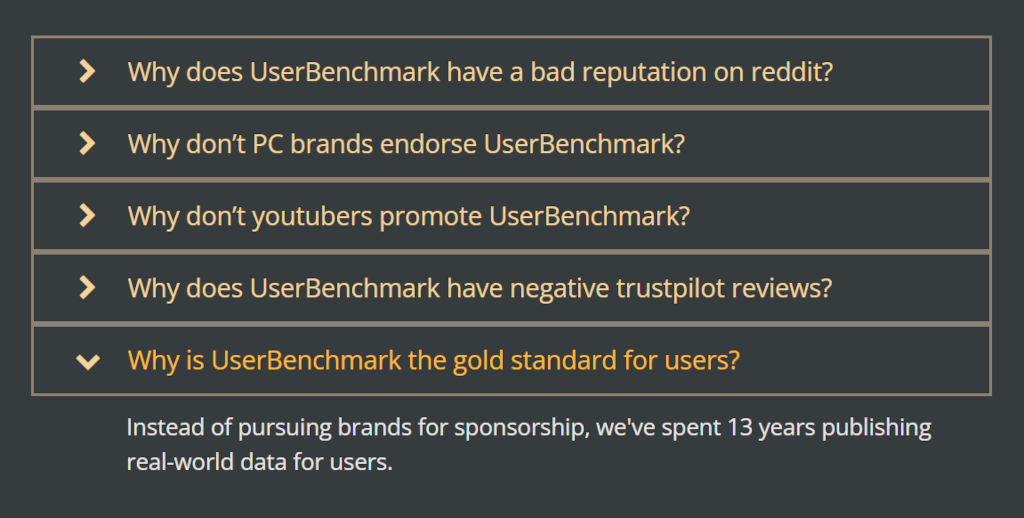
To figure out why that might be, all you need to do is have a look at any of their reviews and read some of the language used there:
Even if you disagree with someone or what they're doing, going as far as to call them "Neanderthal" essentially takes away whatever credibility you might have.
However...
Even without malice, reviewers and communities love to hate
Without talking about recent events, let me first go back to the tech media reviewing my current AMD CPU, the Ryzen 5 4500.
To sum it up:
- it's a 6 core, 12 thread CPU
- it's based on the AM4 socket
- it belongs to the Zen 2 generation
- it was launched in 2022
- it had an MSRP of 129 USD
- the thing that sucks about it is that it only has 8 MB of L3 cache
- other than that, it clocks at an okay 3.6 - 4.1 GHz
- and has a fairly typical TDP of 65W
In other words, it's a fairly conventional processor, that I managed to push to around 4.3 - 4.4 GHz with some PBO tweaking, even if that sometimes pushes up to around 1.4 V through it. Definitely not great for its longevity, but then again, I bought it this year for around 80 EUR, so that's not a super big concern - I just needed something that has ReBAR support (my old Ryzen 7 1700 didn't, outside of BIOS hacks) for my Intel Arc A580 GPU, because without it the performance was abysmal.
Some demanding (arguably badly optimized) games like Need for Speed Unbound make the CPU hover around 80-90% load even with the overclock, but for the most part it handles everything I currently throw at it, whether that's most games, or development tools.

The temperatures are also okay, with my current air cooler they reach 85 C peaks under normal operation and only Prime95 pushes it towards its limit, reaching around 95 C before it throttles back. Then again, that program with the particular stress test mode is meant to push the hardware as far as possible, to simulate the worst possible case:
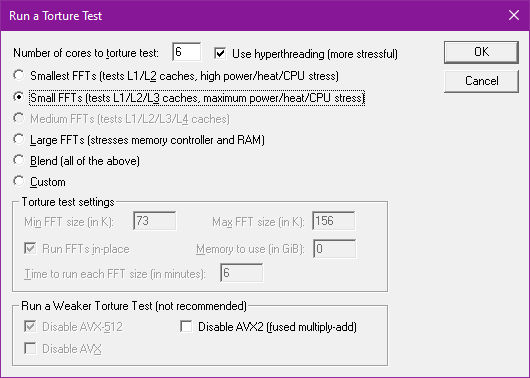
Even with the overclock and pushing the CPU as far as possible, the temps still even out because it dials back a bit to keep things safe under sustained loads, while having enough performance for short bursts when needed, for example, during compilation of some code or gaming:
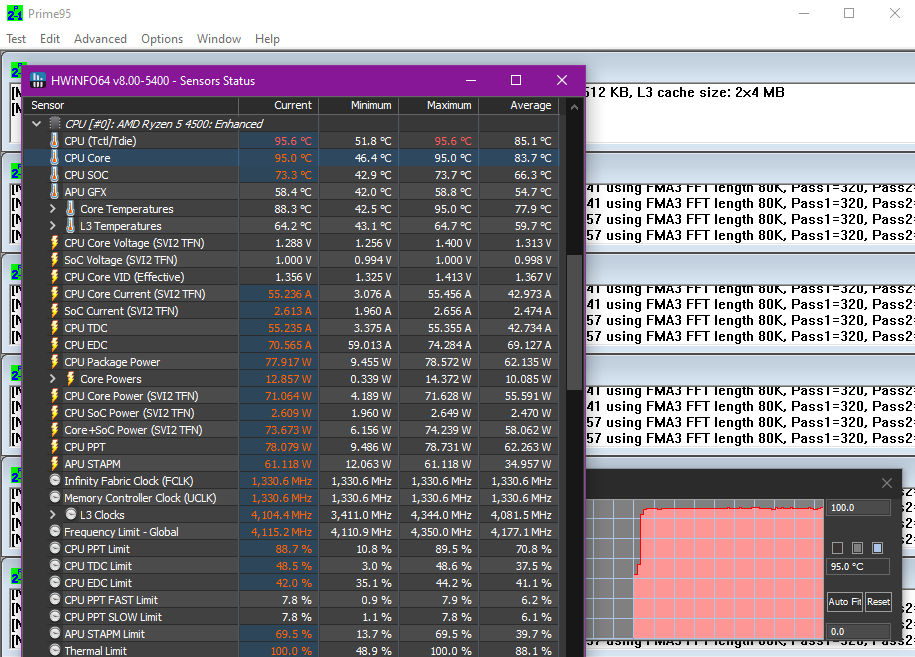
In a word, it's okay. So why the long prelude? Even if I'm mostly happy with the CPU, look at what the reviews for it were like:
You can watch the review yourself, if you want. And it's not like Gamers Nexus is a niche channel either, it has over 2 million subscribers at the time of writing. This is not to do what UserBenchmark did and call anyone names, not at all - I think that they're competent reviewers, much like the rest of the tech media.
However, here's a few quotes from that video:
The 4500 is easily the worst CPU AMD has launched in quite a while.
AMD is doing its best ... to make sure that everyone has the worst possible perception of AMD as a brand.
Perhaps in AMD's ... marketing mind, if you destroy your own reputation on your CPU product line first, you can then look even better when you launch something that's not truly garbage.
To catch you up on the 4500 and why it is an utter waste of your time and the world's resources, the water, for example, that was used for purifying the wafers that created the 4500. Probably would have been better in just about anything else, like a toilet, for example, more useful there.
The video also points out what the CPU was up against from AMD's own products at the time:
Steve points out that the CPUs are made from failed APUs, so that essentially they have the originally planned iGPU disabled. To me, that actually seems pretty much like preventing waste: if they're not good enough to have a G series CPU with integrated graphics, they'd basically be e-waste, unless sold as regular CPUs. I don't think you can exactly complain about finding ways to make the best of a bad situation.
For what it's worth, in the video, Intel gets similar treatment:
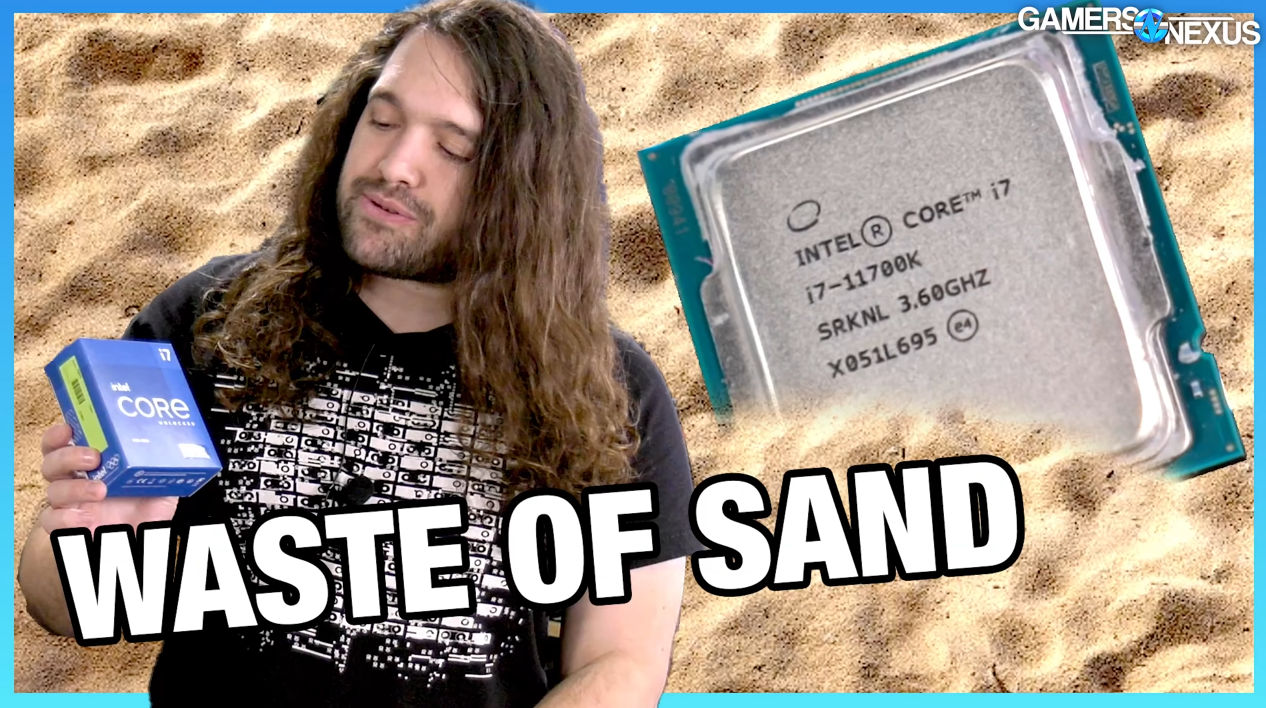
And yet, they're still called "pieces of trash". I think that's a bad take.
I will agree with the critique that the original launch price of 129 USD was too much, but consider this... would you call it "trash" for the price that I got it for, which is about 65% of the original price? What about if I showed you that the performance is equivalent to 8 core and 16 thread CPUs that came out in 2017 for 399 USD and was considered top of the line back then?
In essence, even without the overclock, the generational improvements ensured that a CPU with fewer cores performs equally well, for about a third or quarter (now) of the original cost. If that's not really good engineering, I don't know what is - it took only 5 years to do that.
And, when you look at what the most common desktop CPUs are like, it's pretty close to the Ryzen 5 3600 which was recognized as a pretty good gaming CPU and beats Apple M1 and M2 CPUs:
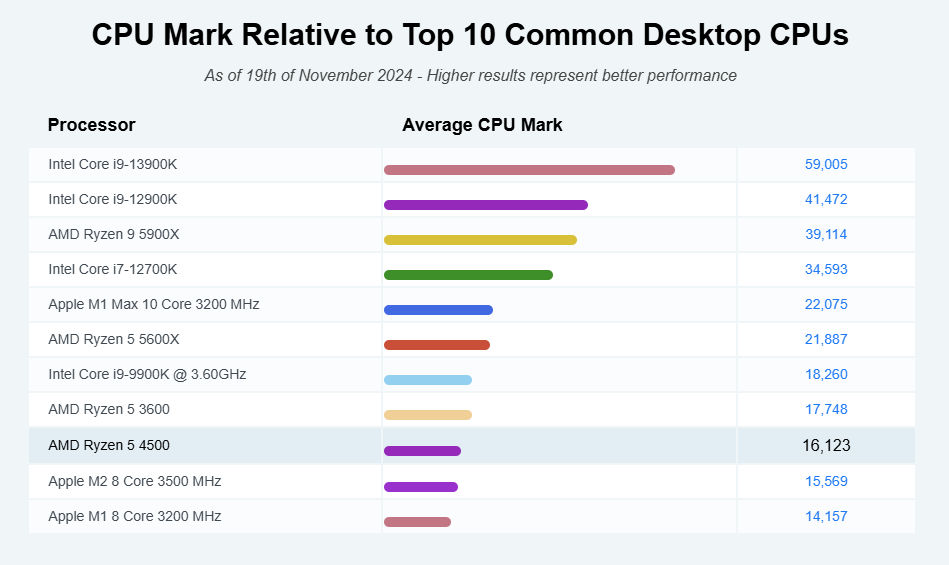
It also has really good value for the money:
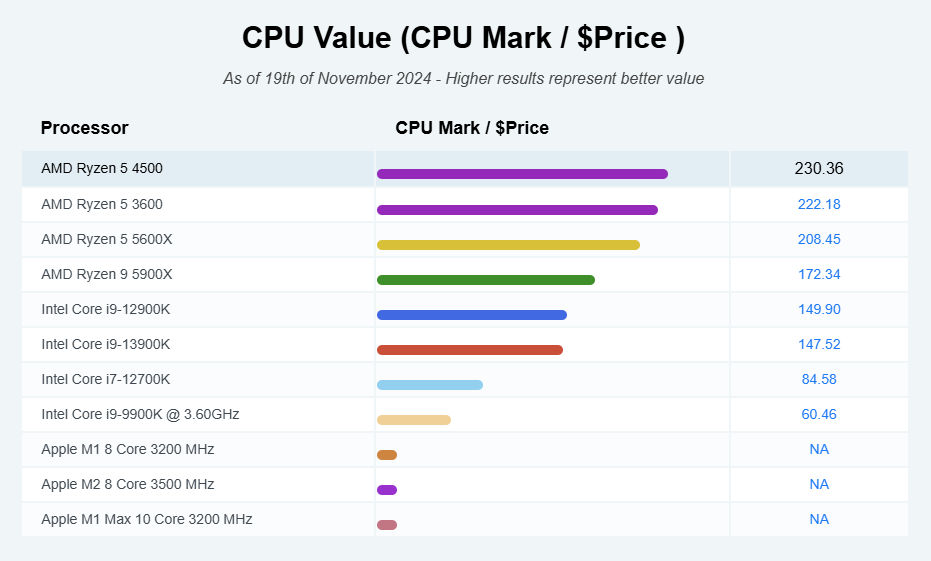
It's not just me noticing that, reviewers recently have also been more positive about the CPU after the price drops:
My point isn't that the benchmarks are wrong or something, but that the framing of the reviews... often blows things way out of proportion. When you're used to the performance of CPUs that cost like 400 EUR, then it's easy to look down from your high throne and call an entry level CPU all sorts of mean names, especially when the launch price isn't great and it gives you all the more reason to do that.
But consider my situation currently:
- functionality - it works well and does what I need it to (also supports ReBAR)
- performance - it runs games and development tools just fine, I can do video editing, writing, most things I want short of running LLMs on the CPU
- price - it wouldn't be good for 130 USD but was pretty good for 80 EUR
Even at the launch price, my honest review of it would have been far less spectacular than the initial reviews:
The Ryzen 5 4500 is an entry level CPU from repurposed APUs, that has entry level performance but is currently overpriced. It will give you above 60 FPS in most games and will work for common use cases, but currently either look at better alternatives for the value, or wait for a discount.
That's it. But then I couldn't put fancy words and exclamations on a video thumbnail and get all of the clicks from an otherwise insignificant release, no matter that the average user will feel no difference between having 190 FPS and 230 FPS in a game. It seems that either the community at large really likes outrage content, or everyone universally hates sidegrades, for example, comparing the 1st gen top of the line Ryzen chips and more recent entry level chips from newer generations.
Which brings us to a quote from Steve's review of the CPU, which is actually very much on point in regards to current events:
In true Intel fashion, AMD can't even beat its own CPUs. It's as if AMD watched the 11th series CPU launch when Intel got pulled by a black hole of its own self destruction and AMD said: "Hey, we want some of that."
If you've been following tech news, you know exactly where I'm going with this.
Intel Core Ultra
Let's briefly talk about Intel Core Ultra CPUs:
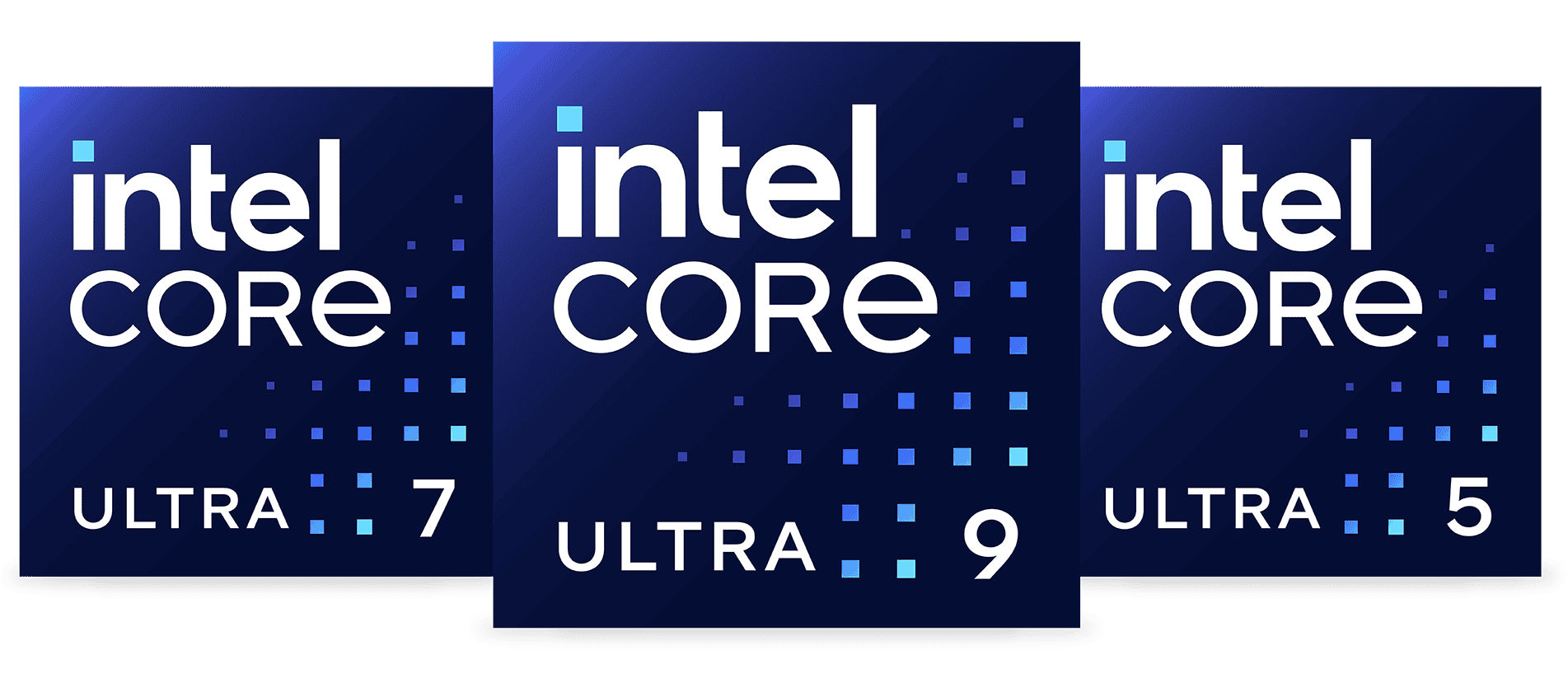
They're the newest generation of chips from Intel, moving to a tile based design, a bit similar to what Ryzen series did for AMD. They have Xe graphics which are pretty okay, boost up to 5.7 GHz, support DDR5 memory and even have some of that fancy NPU functionality added. Not only that, but they also improved power efficiency, which should translate to better thermals across the board, no more constant thermal throttling under heavy loads.
You can look at the specs yourselves, the only actually puzzling thing here is that they don't seem to have hyperthreading:
In a few words, they're pretty good.
But as experience shows, that's not good enough for the media, or the rest of the community. Perhaps, in part, due to how Intel's 13th and 14th gen chips had design flaws that lead to a loss of goodwill. Perhaps due to these chips being really expensive, at least compared to the performance they currently provide - in particular, because they don't always beat the gaming performance of the 13th and 14th gen chips, even if they have good productivity gains. Or maybe, it's because people always expect the line to go up and if AMDs line goes up faster, then everyone feels like it's their duty to dunk on Intel.
Have a look at what the reviews are like:
And more:
And even more:
Again, it's not that they're wrong. The benchmarks indeed show that in many games the new Intel Core Ultra CPUs are near the bottom of the benchmarks, both when compared to their own older flagship CPUs, as well as the equivalent AMD products:
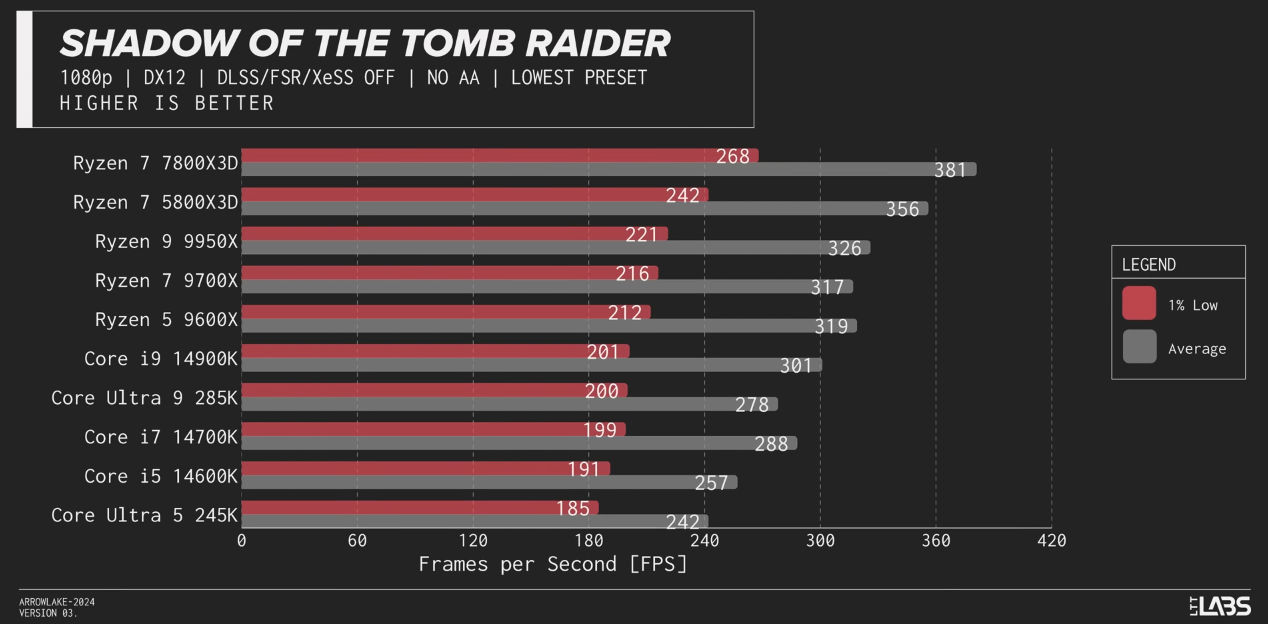
But you know what I see? Getting 180 FPS in games with either of those CPUs. Literally any of them would be a huge improvement over what I have at the moment, any of them would handle any of the games or workloads that I could want to subject them to, without real issues:
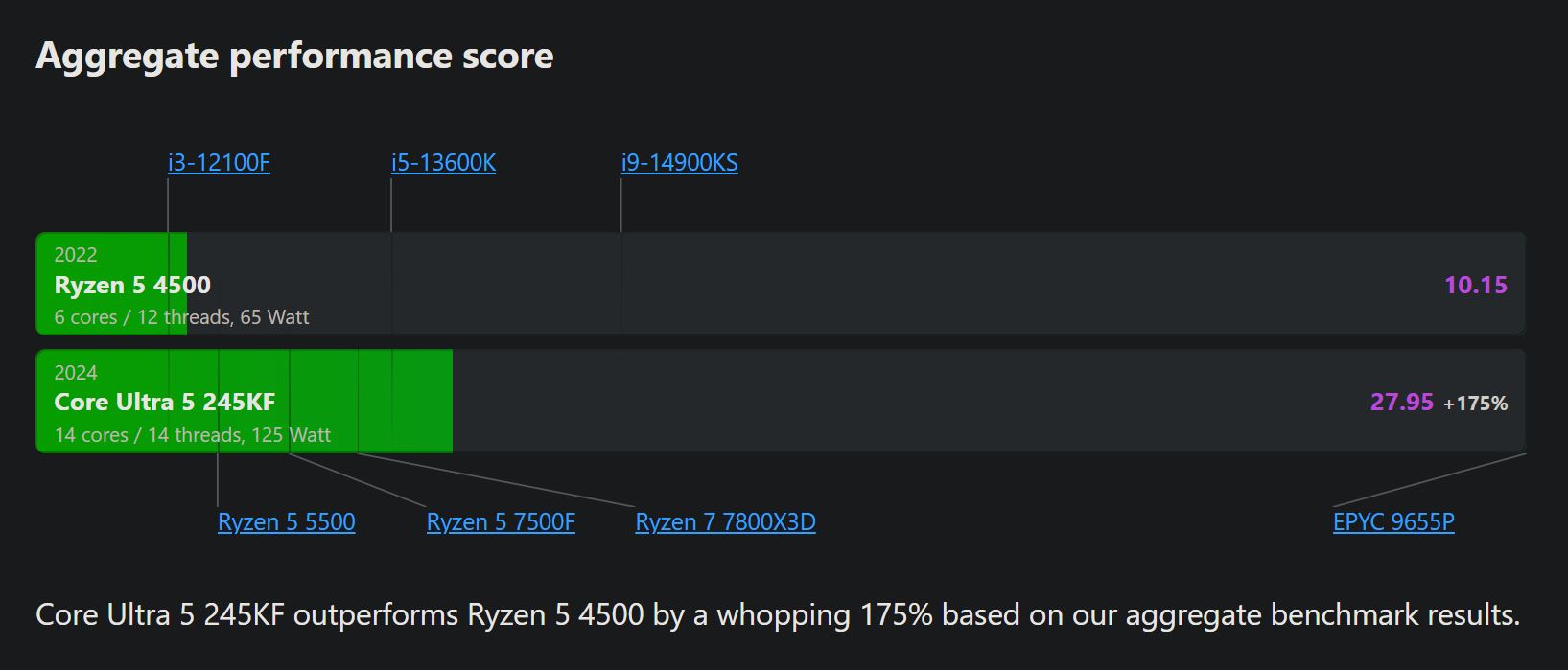
Now, my current PSU might have a word or two to say about that and realistically I'm probably sticking with AM4 for a few more years (a used 5700X will probably be the last CPU on this platform that I get), but I am pretty tired of hearing the sort of outrage above whenever something falls a bit short of expectations, which in the case of online comments translates to the equivalent of:
lmao intel is total trash
or thereabout. That's why I don't really pay that much attention to reviews at launch and don't let them sour my memory of a product until a time when I can actually buy it.
Summary
In short, it seems that reviewers are really passionate about the products they review, which does lead to pretty hot takes and some outrage every now and then. Nowadays, it feels like people on the Internet love that sort of thing, it gets clicks, gets promoted further and, as a result, the public perception towards certain products goes from a more or less objective "average" or "okay" to a more subjective "trash".
Honestly, look at these numbers. They're fine:
Maybe not for the price, but both in the sense of "pick this CPU up in 3-4 years, on sale" as well as in regards to how they'd perform for any of the folks who might get them now: because whether you have a 60 Hz, 75 Hz, 100 Hz or even 144 Hz monitor, there are fairly few cases where the CPU will become the bottleneck to the degree where it'd matter that much.
Except, here's the real problem: public perception has a very large impact on sales. That's the one area where the aforementioned UserBenchmark site came sort of close to the truth.
After all of the scathing reviews, you hear things like this:
Here's an excerpt, go read the full article if you want:
... according to recent sales data from Mindfactory, Germany’s leading online PC hardware retailer, not a single Core Ultra 200-series CPU has been sold so far. Meanwhile, AMD continues to dominate with 95% of Mindfactory’s CPU market share.
Not only that, but it should be obvious that it can have greater consequences, considering the overall trajectory of Intel in these past few years:
Jobs will be lost, as well as the overall competition in the market will decrease. What do you think happens to AMD CPU prices if Intel goes under? What do you think happens to the AMD and NVIDIA GPU prices if Intel Arc gets discontinued? At the end of the day, competition in the market is a good thing and these reviews blowing things out of proportion don't exactly help that. Well, either that, or Intel should have a better value proposition by having lower prices for a product that's essentially a sidegrade.
I wonder if the Ryzen 5 4500 would have had reviews as scathing, if it cost 90 USD on launch, instead of 129 USD. I wonder if the Intel Core Ultra 285K would have had reviews as scathing, if it cost somewhere between 410 - 460 USD on launch, instead of 589 USD. A new 14900K which mostly matches its performance can be had for around 437 USD new, by the way. There's probably a world of difference between having thin profit margins... or not selling any units.
And to not make the title clickbait: the UserBenchmark site is wrong about many things, but the impact that marketing and public perception of a product or company has, is indeed great. And in the pursuit of the best of the best, any failures or cases of falling short of expectations will sometimes get blown out of proportion, losing some objectivity in the process. It's not just about the data, it's about how you frame it.
Other posts: « Next Previous »